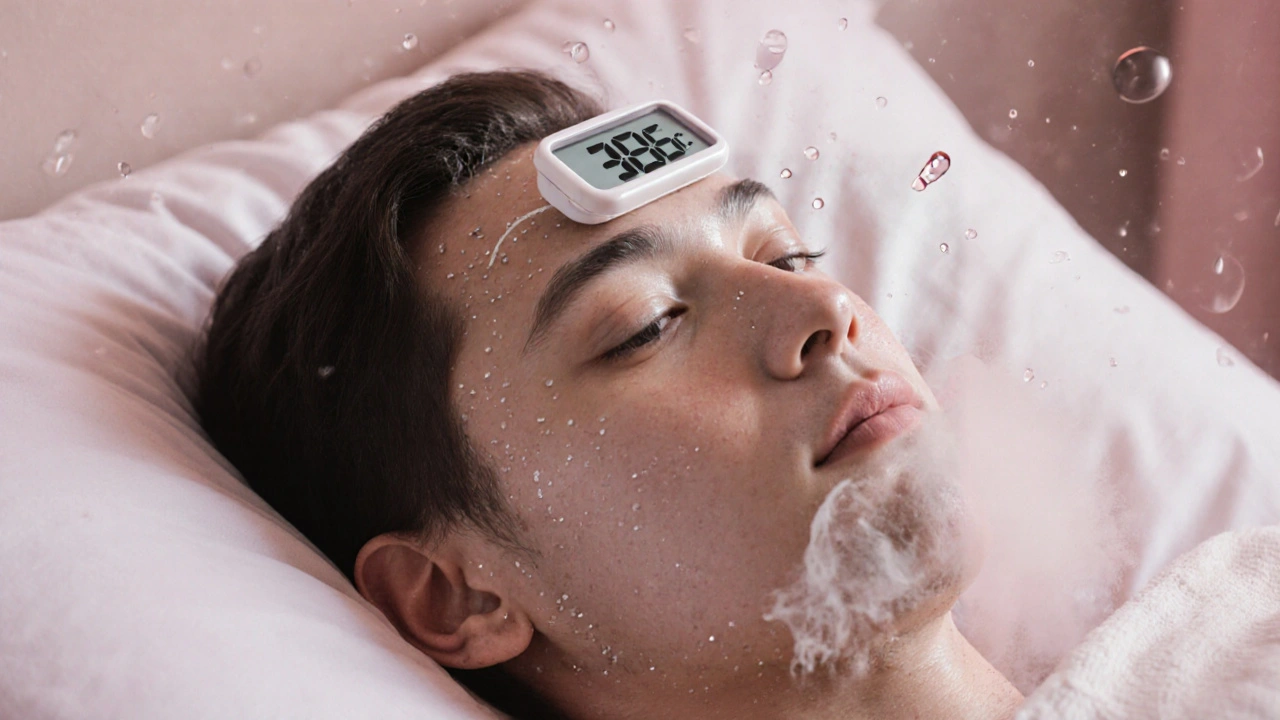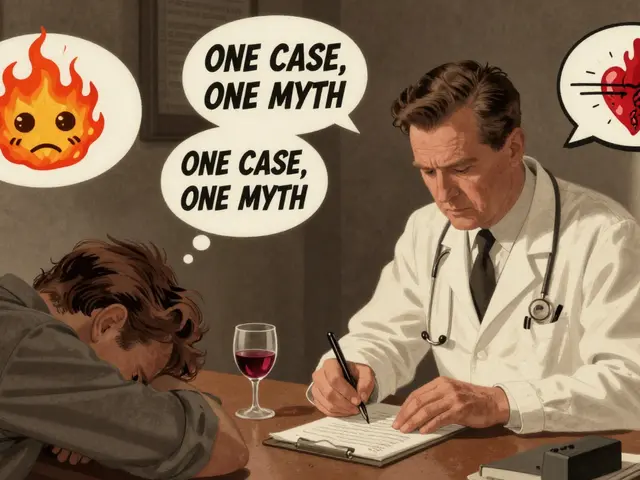Dehydration: Causes, Symptoms, and Safe Management
When dealing with dehydration, a condition where the body loses more water than it takes in, causing lower fluid levels in blood and tissues. Also known as fluid loss, it can quickly affect stamina, cognition, and organ function.
Understanding dehydration is the first step to preventing serious health issues. The body relies on water to transport nutrients, regulate temperature, and keep cells working. When water drops, the balance of salts and minerals—known as electrolytes—gets disturbed. This brings us to electrolyte imbalance, a disruption of sodium, potassium, and other minerals that help control fluid distribution and nerve signals. An electrolyte imbalance can make dehydration symptoms worse, leading to muscle cramps, dizziness, or even heart rhythm problems.
Another common trigger is heat exhaustion, a milder form of heat‑related illness where excessive sweating depletes fluids and salts. When you’re outdoors on a hot day, exercising, or working in a warm environment, the body sweats to cool down. If you don’t replace that lost fluid, dehydration sets in, and the risk of progressing to heat stroke rises sharply. The link is clear: heat exhaustion influences dehydration severity, and vice versa.
Beyond environmental factors, some medicines can push you toward dehydration without you noticing. medication side effects, reactions like increased urination or reduced thirst that certain drugs cause, are often overlooked. Diuretics, certain antibiotics, and even some antidepressants can raise fluid loss, making it easy to slip into dehydration if you don’t monitor intake.
How to Spot and Treat Dehydration Effectively
Dehydration shows up in several ways. The classic signs are thirst, dry mouth, and dark urine. But you’ll also notice reduced skin turgor, headache, and fatigue. In more severe cases, confusion, rapid heartbeat, and low blood pressure appear. Spotting these cues early lets you act before the condition escalates.
The core treatment is fluid replacement. Plain water works for mild cases, but when electrolytes are out of whack, a balanced sports drink or oral rehydration solution is smarter. These solutions contain the right mix of sodium, potassium, and glucose to speed up absorption. For severe dehydration—especially if accompanied by electrolyte imbalance—medical professionals may administer intravenous (IV) fluids like normal saline or lactated Ringer’s solution.
Prevention is equally simple. Carry a water bottle, sip regularly, and adjust intake based on activity level, temperature, and personal health. If you’re on a medication known for fluid loss, discuss with your doctor whether a low‑dose electrolyte supplement makes sense. Eating water‑rich foods—cucumbers, watermelon, broth—adds a hidden boost.
In the context of everyday life, dehydration ties together several health topics you’ll find in our collection below. We cover everything from safe online purchases of medications that could affect fluid balance (like diuretics) to practical guides on managing heat‑related illnesses. Whether you’re curious about the best way to stay hydrated while exercising, need to understand how anemia can aggravate fluid loss, or want tips on buying cheap generic medicines safely, the articles ahead give you real‑world steps you can follow.
Below you’ll discover a range of resources that dive deeper into related conditions, safe medication buying tips, and lifestyle tweaks that keep your body’s water levels optimal. Explore the posts to get actionable advice tailored to your situation.

Fever and Dehydration: Why Staying Hydrated Matters
Learn how fever speeds up fluid loss, spot dehydration signs, and get practical tips to stay hydrated for a faster recovery.
View More




